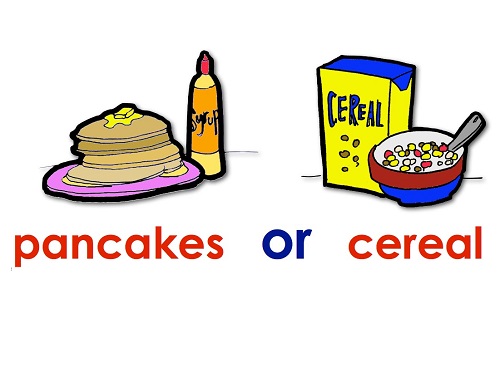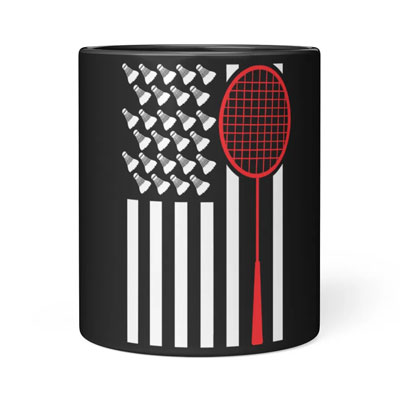Cấu trúc Prefer, Would prefer: Cách dùng & Bài tập
Cấu trúc prefer hay would prefer là hai cấu trúc tương đối đơn giản. Chúng ta sử dụng cấu trúc này để diễn tả sở thích, mong muốn hay thậm chí so sánh hai sự vật, sự việc với nhau. Nhưng thay vì dùng những cấu trúc thường gặp như I like, I want, My hobbies is, hay My interest is…thì cách dùng với prefer hay would prefer vừa đa dạng. Thể hiện được tính trang trọng, lịch sự hơn.
Contents
Cách dùng Prefer, Would prefer
Trong ngữ pháp Tiếng Anh, cấu trúc Prefer hay Would prefer đều được dùng để diễn tả việc “thích điều gì” hoặc “nói về điều mình thích hơn”. Thông thường xuất hiện trong các đoạn hội thoại hoặc bạn là người được hỏi.

Cấu trúc prefer, would prefer mô tả thích điều gì đó hơn.
Cấu trúc prefer
Diễn tả thích cái gì hơn thứ khác. Có thể dùng cụm giới từ đi với to.
S + prefer + something + to + something
Ex: I prefer this kind of juice to the other one I drank last time.
(Tôi thích loại nước quả này hơn loại tôi uống lần trước)
S + prefer + Ving
Ex: He prefers watching news on TV.
(Anh ấy thích xem thời sự trên tivi)
S + prefer + to V
Ex: My father prefers to drink green tea.
(Bố tôi thích uống trà xanh)
S + prefer + Ving + to + Ving
Ex: I prefer preparing the ingredients to washing dishes.
(Tôi thích chuẩn bị nguyên liệu hơn là rửa bát)
S + prefer + to do + something + rather than + do + something
Ex: Van prefers to live in Lang Son city rather than live in Hanoi capital.
(Vân thích sống ở thành phố Lạng Sơn hơn là sống ở thủ đô Hà Nội)
Đây là cấu trúc thường được dùng trong bối cảnh yêu cầu tính lịch sự, trang trọng nhiều hơn là trong bối cảnh giao tiếp hàng ngày.
Cấu trúc would prefer
S + would prefer + N/to V
Ex: I would prefer to listen to Kpop songs.
(Tôi thích nghe những ca khúc nhạc trẻ của Hàn Quốc)
Ex: Would you prefer a smaller t-shirt?
(Bạn có muốn thử một chiếc áo sơ mi nhỏ hơn không?)
Với dạng phủ định, bạn chỉ cần thêm “not” vào sau “would prefer”.
Ex: My mother would prefer not to wear something red.
(Mẹ tôi không thích mặc đồ màu đỏ)
S + would prefer + to V + rather than + V (thích thứ gì hơn thứ gì)
Ex: I would prefer to stay at home rather than hang out with friends.
(Tôi thích ở nhà hơn là ra ngoài đi chơi với bạn bè)
S1 + would prefer + S2 + to V
Đây là cấu trúc diễn tả mong muốn, yêu cầu của người này và muốn người kia thực hiện.
Ex: My mother would prefer us to have dinner at home everyday.
(Mẹ tôi muốn chúng tôi ăn bữa tối ở nhà mỗi ngày)
Would you prefer me to cook for lunch?
(Mẹ muốn con nấu cơm cho bữa trưa không?)
Cấu trúc tương đồng với would prefer
Cách dùng Would prefer tương tự như Would rather với nghĩa là “thích gì đó hơn”. Trong nhiều trường hợp có thể sử dụng would rather để thay thế vị trí cho would prefer hoặc ngược lại.
Would rather = would prefer
Ở thì hiện tại và tương lai
S + would rather + V
Ex: I would rather watch Sherlock Holmes series on Netflix.
(Tôi muốn xem phim bộ Sherlock Holmes trên Netflix hơn)
I would rather not go abroad because I get tired from jet lag usually.
(Tôi không muốn ra nước ngoài vì tôi thường xuyên cảm thấy mệt sau chuyến bay)
S + would rather + V + than + V
Ex: My son would rather play video games than do his homework.
(Con trai tôi thích chơi điện tử hơn là làm bài tập về nhà)
Ở thì quá khứ
S + would rather + have + Vpp + (than)…
I would rather have celebrated my birthday party last week than this Thursday.
(Tôi muốn tổ chức tiệc sinh nhật của mình vào tuần trước hơn là vào thứ năm tới)

I would rather have celebrated my birthday party last week than this Thursday.
Đặt câu hỏi Prefer và would prefer
– Đối với Would prefer nếu muốn đặt câu hỏi chỉ cần đưa Would đặt ở đầu câu.
Ex: I would prefer to drink coffee to tea.
Đặt câu hỏi với would prefer: Would you prefer to drink coffee or tea?
– Còn câu hỏi với Prefer chỉ việc mượn do, does, did đặt trước phần chủ ngữ của câu.
Ex: I prefer to drink tea.
Đặt câu hỏi với prefer: Do you prefer to drink tea?
Câu phủ định
Trường hợp Prefer và Would prefer phủ định, người dùng chỉ việc thêm “not” phía sau Prefer và Would prefer.
Ex: I would prefer to drink coffee to tea.
Phủ định: I would prefer not to drink coffee.
Ex: I prefer to drink tea.
Phủ định: I prefer not to drink tea.
Điểm khác biệt prerfer và would prefer
Cả Prefer hay Would prefer đều nhằm diễn tả việc “thích điều gì” hoặc “nói về điều mình thích hơn”. Vậy cấu trúc Prefer hay Would prefer có điểm gì khác nhau? Chắc chắn là ngữ cảnh của chúng.
– Prefer sử dụng cho các trường hợp lâu dài.
– Would prefer dùng trong các trường hợp cụ thể, ngắn hạn.
Ví dụ: Khi có người hỏi bạn thích sống quốc gia/thành phố nào hơn? Nhiều người thường sử dụng prerfer (lâu dài). Trường hợp vào cửa hàng ăn uống hoặc giải khát, có người hỏi thích món ăn/thức uống nào hơn, trường hợp này Would prefer sử dụng nhiều hơn.
Chú ý:
– Prefer…to… (không dùng “than”).
– Would prefer…to…(không dùng “than”).
✅ Xem thêm: Cấu trúc Would rather
Bài tập
I. Điền vào chỗ trống.
1. I prefer milk…tea.
2. I…to go out for a while…stay at home alone.
3. She…to have a long vacation with her family after the business trip.
4. She…become an art director.
5. I…not to do my homework.
6. My dad would like to go to Korea but my mother would…to visit China.
7. I love watching movie but I prefer…in the cinema.
II. Điền vào chỗ trống prefer/would prefer
1. She … drinking a cup of coffee.
2. We … going abroad on a long vacation.
3. Why do you … to attend a concert rather than watch it live?
4. I … to work part-time rather than work full-time.
5. I like both Harry Potter and Peaky Blinders. But I … Harry Potter.
III. Make sentences
1. My sister/ prefer/ Twitter/ Facebook.
2. I/ prefer/ travel/ my family.
3. They/ would prefer/ us/ perform/ stage.
4. She/ would prefer/ study/ herself/ rather than/ work/friends.
5. I/ be/ big fan/ cakes/ I/ prefer /eat/ bread.
6. I/ would prefer/ take exercise/ morning/ afternoon.
7. I/ prefer/ donate/ charity/ rather than/ do/ volunteering work.
8. I/ would rather/ you/ clean/ bathroom/ after/ use.
9. I/ prefer/ be/ psychologist/ become/ lawyer.
10. I/ would prefer/ watch movie/ movie theater/ once/month.
IV. Hoàn thành câu với từ cho trước và sử dụng từ 2-5 từ.
1. She likes magazines more than newspapers. (Prefers)
She … newspapers.
2. Hero would rather play badminton than do his household chores. (Prefer)
Hero would … than do his household chores.
3. Jack’s parents would rather him didn’t use money too much like that. (Not)
Jack’s parents prefer him … money too much like that.
4. Max thinks that staying at home is better than going to clubs. (To)
Max prefers staying … to clubs.
5. I’d rather you didn’t disturb me while I’m working. (If)
I’d prefer … disturb me while I’m working.
Đáp án
I.
1. to
2. would prefer/than
3. would prefer
4. would rather
5. would prefer
6. prefer
7. to watch/watching
II.
1. prefers
2. prefer
3. prefer/ would prefer
4. prefer/ would prefer
5. prefer
III.
1. My sister prefers Twitter to Facebook.
2. I prefer traveling with my family.
3. They would prefer us to perform on the stage.
4. She would prefer to study on her own rather than work with friends.
5. I am a big fan of cakes but I prefer eating bread.
6. I would prefer take exercise in the morning rather than afternoon.
7. I prefer to donate to charity rather than do volunteering work.
8. I would rather you to clean the bathroom after using.
9. I prefer being a psychologist to becoming a lawyer.
10. I would prefer to watch movies in the movie theater once a month.
IV.
1. She prefers magazines to newspapers.
2. Hero would prefer to play badminton rather than do his household chores.
3. Jack’s parents prefer him not to use money too much like that.
4. Max prefers staying at home to going to clubs.
5. I’d prefer it if you didn’t disturb me while I’m working.
✅ Xem thêm: Cấu trúc Would you like.
Cấu trúc Prefer, Would prefer thường xuất hiện nhiều trong các bài tập. Nhớ kĩ kiến thức các bạn sẽ không bở ngỡ thì thực hành bài tập ở lớp hoặc kiểm tra.
Chúng các bạn học thật tốt!
Ngữ Pháp -Cấu trúc Càng Càng The more The more Tiếng Anh
Cách dùng Need: cấu trúc và lưu ý khi dùng Need
Cấu trúc Would you like: cách dùng, cách trả lời người khác
Khi nào dùng Was Were trong Tiếng Anh
Cấu trúc It take và Spend: cách dùng và bài tập
No sooner than: Cách dùng cấu trúc No sooner than chi tiết
If only là gì? Cách dùng If only

